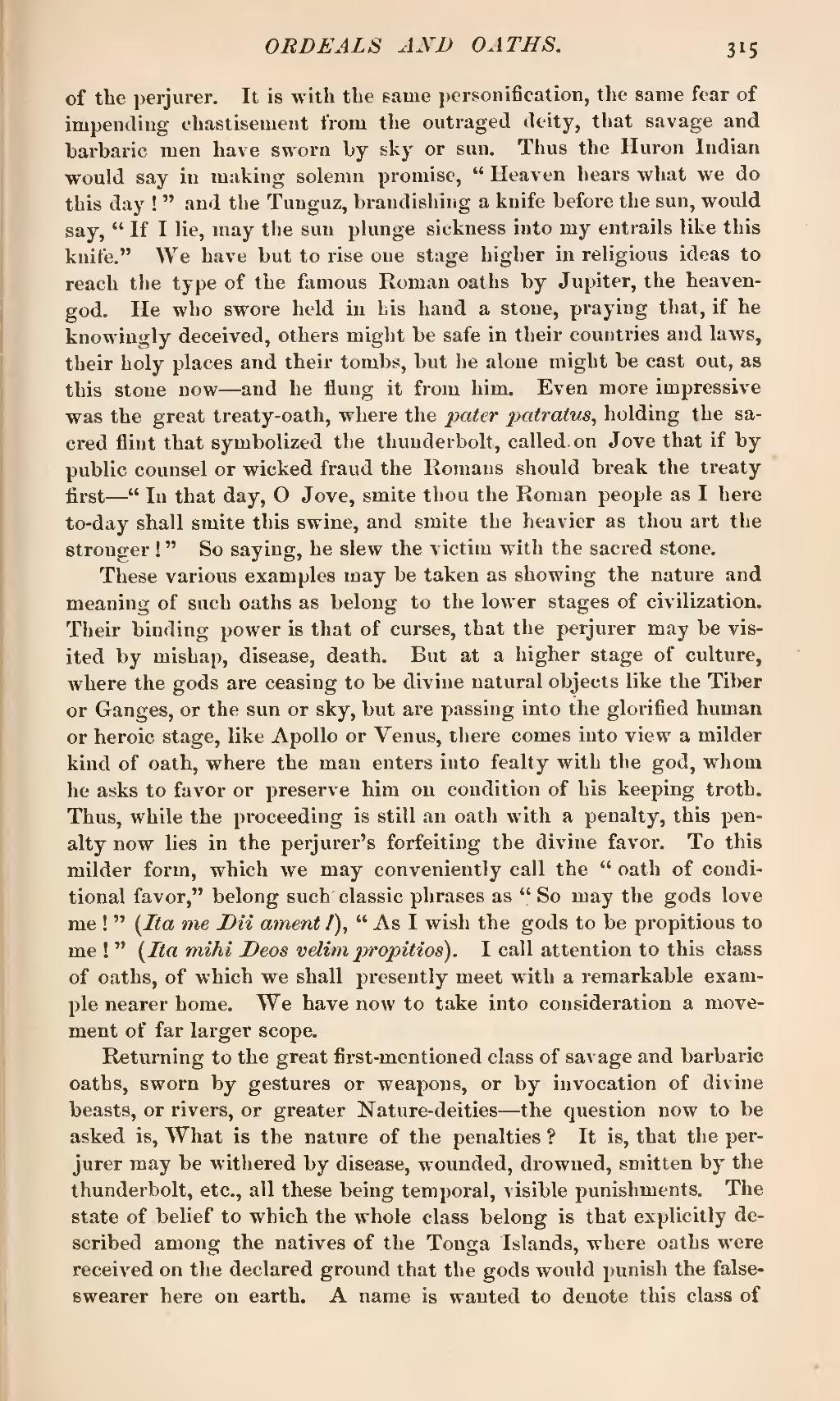of the perjurer. It is with the same personification, the same fear of impending chastisement from the outraged deity, that savage and barbaric men have sworn by sky or sun. Thus the Huron Indian would say in making solemn promise, "Heaven hears what we do this day!" and the Tunguz, brandishing a knife before the sun, would say, "If I lie, may the sun plunge sickness into my entrails like this knife." We have but to rise one stage higher in religious ideas to reach the type of the famous Roman oaths by Jupiter, the heaven-god. He who swore held in his hand a stone, praying that, if he knowingly deceived, others might be safe in their countries and laws, their holy places and their tombs, but he alone might be cast out, as this stone now—and he flung it from him. Even more impressive was the great treaty-oath, where the pater patratus, holding the sacred flint that symbolized the thunderbolt, called. on Jove that if by public counsel or wicked fraud the Romans should break the treaty first—"In that day, O Jove, smite thou the Roman people as I here to-day shall smite this swine, and smite the heavier as thou art the stronger!" So saying, he slew the victim with the sacred stone.
These various examples may be taken as showing the nature and meaning of such oaths as belong to the lower stages of civilization. Their binding power is that of curses, that the perjurer may be visited by mishap, disease, death. But at a higher stage of culture, where the gods are ceasing to be divine natural objects like the Tiber or Ganges, or the sun or sky, but are passing into the glorified human or heroic stage, like Apollo or Venus, there comes into view a milder kind of oath, where the man enters into fealty with the god, whom he asks to favor or preserve him on condition of his keeping troth. Thus, while the proceeding is still an oath with a penalty, this penalty now lies in the perjurer's forfeiting the divine favor. To this milder form, which we may conveniently call the "oath of conditional favor," belong such' classic phrases as "So may the gods love me!" (Ita me Dii ament!), "As I wish the gods to be propitious to me!" (Ita mihi Deos velim propitios). I call attention to this class of oaths, of which we shall presently meet with a remarkable example nearer home. We have now to take into consideration a movement of far larger scope.
Returning to the great first-mentioned class of savage and barbaric oaths, sworn by gestures or weapons, or by invocation of divine beasts, or rivers, or greater Nature-deities—the question now to be asked is, What is the nature of the penalties? It is, that the perjurer may be withered by disease, wounded, drowned, smitten by the thunderbolt, etc., all these being temporal, visible punishments. The state of belief to which the whole class belong is that explicitly described among the natives of the Tonga Islands, where oaths were received on the declared ground that the gods would punish the false-swearer here on earth. A name is wanted to denote this class of
